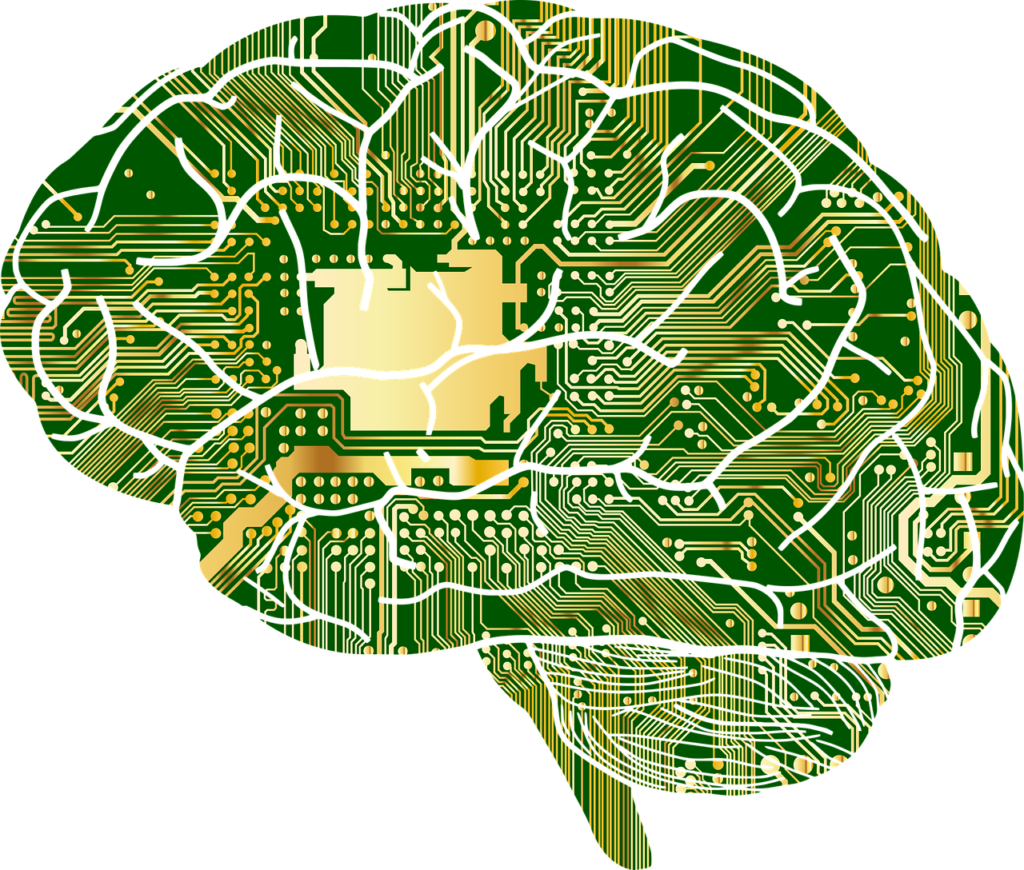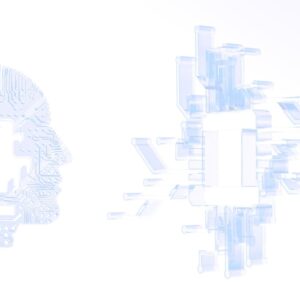Artificial intelligence, or AI for short, has become a popular buzzword in recent years. But what does it actually mean? In this article, we will explore the true essence of AI and demystify its complexities. From its origins to its current applications, we will delve into the fascinating world of artificial intelligence and unravel its impact on our daily lives. So, get ready to embark on a journey of understanding and discovery as we uncover what artificial intelligence really is.

Defining Artificial Intelligence
The concept of intelligence
When we talk about artificial intelligence (AI), it’s important to first understand the concept of intelligence itself. Intelligence refers to the ability to acquire and apply knowledge, reasoning, problem-solving, and learning. It encompasses skills such as perception, understanding, decision-making, and adaptation. Human intelligence has long been regarded as a unique and fundamental aspect of our existence.
Introduction to artificial intelligence
Artificial intelligence, on the other hand, refers to the development of computer systems that can perform tasks that would typically require human intelligence. These tasks may involve visual perception, speech recognition, decision-making, language translation, and problem-solving. AI aims to replicate and potentially enhance human-like intelligence in machines.
Understanding the term ‘artificial’
The term “artificial” in artificial intelligence refers to the fact that it is created by humans and is not naturally occurring. While human intelligence is a result of biological evolution, AI is a product of human innovation and technological advancements. However, the aim of AI is to mimic and simulate human intelligence to a certain extent, making it a fascinating field of study and development.
The scope of artificial intelligence
The scope of artificial intelligence is vast and encompasses various subfields and applications. AI can be categorized into different types based on their capabilities and levels of generalization. These range from narrow or weak AI, which is designed to perform specific tasks, to general or strong AI, which possesses a broader range of cognitive abilities and can adapt to different tasks and situations.
History of Artificial Intelligence
The origins of artificial intelligence
The history of artificial intelligence dates back to ancient times, when humans first developed tools and technologies to simplify their daily activities. The desire to replicate human-like cognitive abilities in machines can be traced back to Greek mythology, where mechanical beings like automatons were imagined. However, the true origins of AI as a scientific discipline can be traced to the 1950s.
Early pioneers in AI
During the 1950s and 1960s, the field of AI witnessed significant contributions from early pioneers. Researchers like Alan Turing and John McCarthy played crucial roles in shaping the foundations of AI. Turing introduced the concept of the “Turing Test,” a method to determine if a machine can exhibit human-like intelligence. McCarthy coined the term “artificial intelligence” and worked on developing programming languages and AI programming techniques.
Major milestones in AI development
Over the years, AI research and development have achieved significant milestones. In 1956, the Dartmouth Conference marked the birth of AI as a field of study. The development of rule-based expert systems in the 1970s and the advent of machine learning algorithms in the 1980s were major breakthroughs. The 1990s witnessed advancements in natural language processing and neural networks. In recent years, deep learning, big data, and cloud computing have further propelled AI advancements.
Recent advancements in AI
Recent advancements in AI have been driven by the availability of vast amounts of data, improved computational power, and algorithmic breakthroughs. Machine learning techniques, such as convolutional neural networks and recurrent neural networks, have revolutionized image and speech recognition. Reinforcement learning has enabled machines to learn from their own experiences, leading to significant improvements in tasks requiring decision-making.
Types of Artificial Intelligence
Narrow/Weak AI
Narrow or weak AI refers to AI systems that are designed and programmed to perform specific tasks and have a limited range of expertise. Examples of narrow AI include voice assistants like Siri and Alexa, image recognition systems, and recommendation algorithms. These AI systems excel in their designated tasks but lack the ability to generalize beyond their specialized domain.
General/Strong AI
General or strong AI aims to replicate the broad range of cognitive abilities possessed by humans. Strong AI systems would exhibit human-like intelligence across various domains and be capable of adapting to new tasks and situations. Achieving strong AI remains a grand challenge in the field and is an area of active research.
Superintelligent AI
Superintelligent AI refers to AI systems that surpass human intelligence in all aspects. While superintelligence is primarily a topic of speculation and theoretical discussion, it raises concerns about the potential consequences and ethical implications of creating AI that exceeds human capabilities.
Applied AI
Applied AI refers to the application of AI techniques and technologies to specific industries, domains, or problem-solving scenarios. It involves leveraging AI tools, algorithms, and models to streamline and enhance human activities in areas such as healthcare, finance, transportation, manufacturing, customer service, entertainment, and cybersecurity.
Machine Learning and AI
Machine learning is a subfield of AI that focuses on algorithms and models that enable machines to learn and improve from data without being explicitly programmed. It is a crucial component of AI systems, providing them with the ability to recognize patterns, make predictions, and adapt their behavior based on experience.
Applications of Artificial Intelligence
AI in healthcare
Artificial intelligence has the potential to revolutionize healthcare by assisting in diagnosis, treatment planning, drug discovery, and patient monitoring. AI can analyze medical images, such as X-rays and MRIs, to detect abnormalities and assist radiologists in their diagnoses. Machine learning algorithms can also be used to predict disease progression and personalize treatment plans based on individual patient data.
AI in finance
In the finance industry, AI is widely used for tasks such as fraud detection, automated trading, risk assessment, and customer service. AI-powered chatbots enable banks to provide personalized and efficient customer support. Machine learning algorithms can analyze vast amounts of financial data to identify patterns and predict market trends, helping investors make informed decisions.
AI in transportation
Artificial intelligence plays a crucial role in transforming transportation systems. Autonomous vehicles, powered by AI algorithms and sensor technologies, have the potential to reduce accidents, optimize traffic flow, and enhance fuel efficiency. AI also enables intelligent routing, vehicle maintenance prediction, and real-time passenger information systems.
AI in manufacturing
AI technologies, such as robotics and computer vision, can automate manufacturing processes, improving efficiency, accuracy, and safety. Robots equipped with AI algorithms can perform complex tasks, such as assembly and quality control. AI-powered predictive maintenance systems can detect potential equipment failures, minimizing downtime and maximizing productivity.
AI in customer service
AI-based chatbots and virtual assistants are increasingly being used in customer service to provide round-the-clock support and improve user experiences. These AI systems can interact with customers, answer queries, provide recommendations, and handle routine service requests, freeing up human agents to focus on more complex issues.
AI in entertainment
AI is transforming the entertainment industry by enabling personalized content recommendations, content creation, and virtual reality experiences. Streaming platforms leverage AI algorithms to understand users’ preferences and suggest relevant movies or TV shows. AI can also generate music, art, and storytelling, expanding creative possibilities.
AI in cybersecurity
With the rise of digital threats, artificial intelligence is being used to enhance cybersecurity measures. AI algorithms can analyze network traffic, identify abnormal behavior, and detect potential security breaches. Machine learning models can also learn from past attacks to develop proactive defense mechanisms, thereby strengthening cybersecurity infrastructure.

Ethical Considerations in Artificial Intelligence
AI and privacy concerns
The widespread adoption of AI raises concerns about privacy and data protection. AI systems often rely on large amounts of personal data to perform their tasks effectively. It is crucial to establish robust privacy frameworks and ensure the responsible and ethical use of data. Striking a balance between the benefits of AI and preserving individual privacy is an ongoing challenge.
AI and job displacement
The automation potential of AI raises concerns about job displacement and the impact on the workforce. While AI has the potential to streamline workflows and eliminate repetitive tasks, it is important to address the potential impact on employment. Discussions on re-skilling and upskilling the workforce, as well as creating new job opportunities in AI-related fields, are crucial to mitigating these concerns.
Bias and fairness in AI algorithms
AI algorithms may exhibit biases if they are trained on biased data or designed without sufficient consideration of fairness. This can result in discriminatory outcomes, reinforcing societal biases, and exacerbating inequality. Ensuring the fairness and transparency of AI algorithms is essential to avoiding unintended negative consequences.
AI and ethical decision-making
AI systems are increasingly being used to make decisions that have ethical implications. For example, autonomous vehicles must make split-second decisions in potentially life-threatening situations. It is crucial to address the ethical dimensions of AI decision-making and ensure AI systems adhere to ethical principles and values.
AI and autonomous weapons
The development of AI-powered autonomous weapons raises ethical concerns regarding accountability, human control, and the potential for misuse. Striking a balance between leveraging AI for security purposes and ensuring human oversight and accountability is essential to prevent the unintended consequences of autonomous weapons.
Limitations and Challenges of Artificial Intelligence
Current limitations of AI
Despite significant advancements, AI still faces several limitations. AI systems often require large amounts of labeled training data to perform well, which can be time-consuming and costly to obtain. AI systems may struggle with reasoning and common-sense understanding, making it challenging to generalize beyond specific domains or tasks.
Data availability and quality
AI’s performance heavily relies on the availability and quality of data. Limited access to diverse datasets or biased data can result in AI systems that are ineffective or discriminatory. Ensuring data availability, diversity, and quality is crucial to improve the reliability and fairness of AI systems.
Lack of interpretability
AI systems, especially those using deep learning techniques, can often be considered black boxes, meaning their decision-making process is not easily explainable or interpretable. This lack of interpretability raises concerns about trust, accountability, and potential bias in AI systems. Developing interpretable AI models and methods is an active area of research.
Robustness and reliability
AI systems are vulnerable to adversarial attacks, where malicious actors can manipulate inputs to deceive or exploit the system. Ensuring the robustness and reliability of AI systems, especially in safety-critical applications, is crucial to preventing potential harm or unintended consequences.
AI and human comprehension
AI’s ability to process and analyze vast amounts of data can sometimes lead to insights or decisions that are difficult for humans to understand or comprehend. Building AI systems that can not only perform tasks effectively but also provide explanations and justifications for their decisions is an important challenge to address.

The Future of Artificial Intelligence
Emerging trends in AI
The future of artificial intelligence holds immense potential and promises several exciting trends. One such trend is the integration of AI with other emerging technologies, such as the Internet of Things (IoT), blockchain, and quantum computing. This convergence could revolutionize various industries and enable unprecedented levels of connectivity, efficiency, and innovation.
AI and human-machine collaboration
As AI continues to advance, the focus is shifting towards human-machine collaboration rather than human replacement. AI systems can augment human capabilities, assist in complex decision-making, and automate routine tasks, freeing humans to focus on higher-level cognitive and creative endeavors.
Potential impact of AI on society
AI’s impact on society is expected to be far-reaching. It has the potential to transform industries, improve healthcare outcomes, enhance automation and efficiency, and revolutionize various aspects of our lives. However, there are also concerns about the potential for job displacement, ethical implications, and socioeconomic inequality. Navigating this impact and ensuring inclusive and equitable deployment of AI is crucial.
AI and the future of work
The widespread adoption of AI undoubtedly has implications for the future of work. While some jobs may become automated, new roles and opportunities in AI development, data science, and AI ethics may emerge. Preparing the workforce for these changes, promoting lifelong learning, and ensuring a smooth transition are essential considerations.
Ethical Guidelines and Regulations for AI
Existing frameworks for AI ethics
In response to the ethical implications of AI, several frameworks and guidelines have been proposed. Organizations such as the European Commission, the Institute of Electrical and Electronics Engineers (IEEE), and the Partnership on AI have published ethical guidelines for AI development and deployment. These frameworks emphasize transparency, fairness, accountability, privacy, and inclusivity as key principles.
The need for regulatory guidelines
While ethical guidelines provide broad principles, there is also a growing need for regulatory guidelines to ensure responsible and accountable AI development. Regulatory frameworks can address concerns such as data protection, bias mitigation, algorithmic transparency, and accountability. Balancing innovation and regulation is crucial to fostering responsible AI adoption.
AI governance and accountability
Establishing AI governance frameworks that involve industry, academia, policymakers, and civil society is essential to manage the ethical and regulatory challenges posed by AI. These frameworks can provide oversight, ensure accountability, and facilitate collaboration and knowledge-sharing to address AI’s impact on society.
Debates and Controversies in Artificial Intelligence
Fear of superintelligence
The concept of superintelligent AI has sparked debates and concerns about its potential impact on humanity. Some argue that superintelligent AI could lead to a technological singularity where AI surpasses human control and understanding. Others believe that these concerns are exaggerated and that superintelligence can be safely managed through careful research, governance, and ethical considerations.
AI and job loss
The automation potential of AI has raised fears of mass job displacement. However, historical evidence suggests that technological advancements have typically led to the emergence of new jobs and industries. It is crucial to invest in education, upskilling, and reskilling programs to ensure a smooth transition and minimize the negative impact on the workforce.
Weaponization of AI
Controversies surround the use of AI in military applications, particularly around autonomous weapons. Concerns range from the lack of human control to potential unintended consequences and arms races. The ethical considerations surrounding autonomous weapons and the need for international regulations have sparked intense debates and discussions.
AI and human control
Ensuring human control and oversight over AI systems is a topic of ongoing debate. The complexity and autonomy of AI systems raise questions about who should be responsible for their actions and decisions. Collaborative efforts among researchers, policymakers, and industry leaders are necessary to establish guidelines and frameworks for maintaining human control over AI.
Conclusion
Artificial intelligence has come a long way since its inception and continues to advance at an unprecedented pace. From its origins in Greek mythology to the development of modern machine learning algorithms, AI has found applications in various industries, transforming the way we live and work. However, as AI becomes increasingly powerful and widespread, it is important to address ethical considerations, ensure accountability, and regulate its deployment to ensure a future that maximizes its benefits while mitigating potential risks. By embracing the potential of AI while remaining vigilant and thoughtful, we can shape a future where artificial intelligence works in harmony with human intelligence, leading to a more prosperous and inclusive society.



